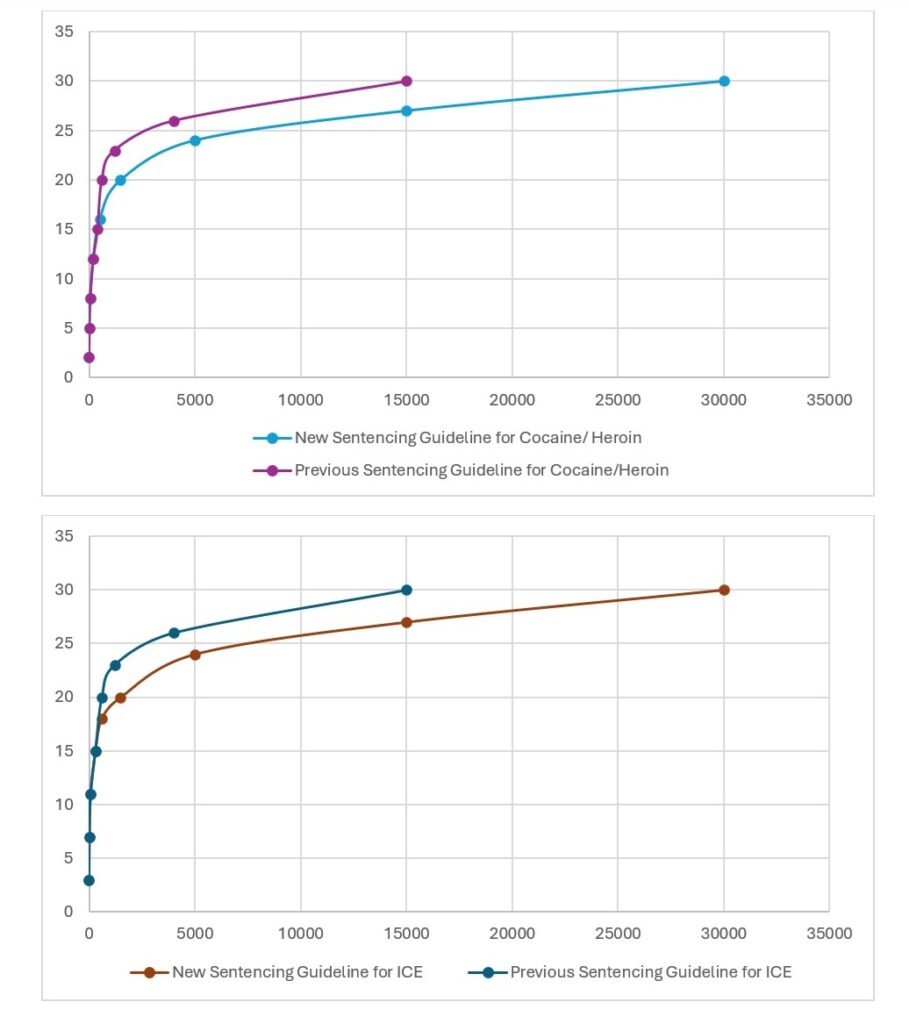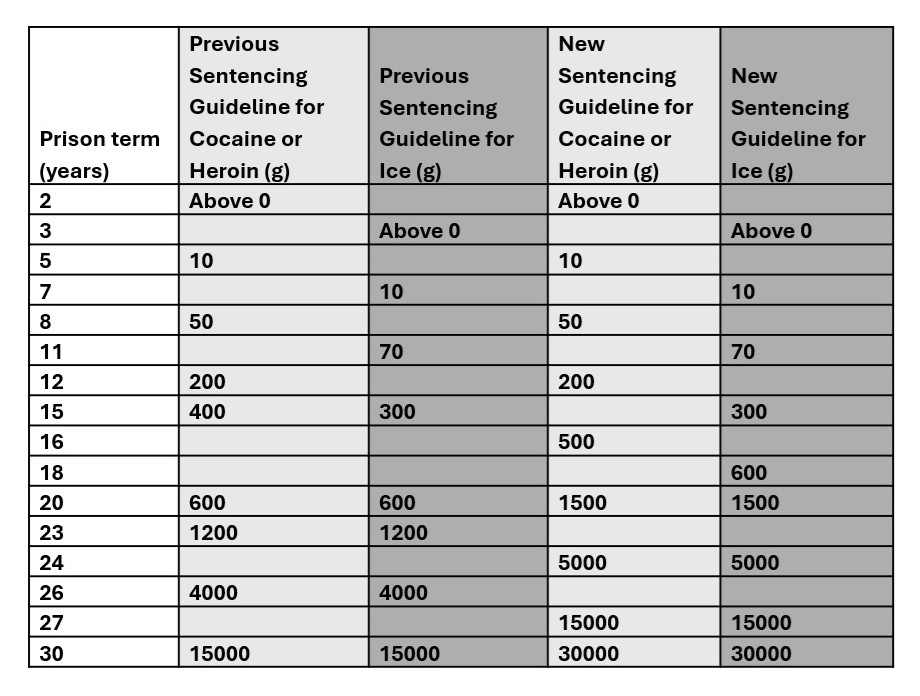By Jasmine Kwong
Hong Kong, 12 March 2025: In a significant ruling, the Court of Appeal has modified Hong Kong’s sentencing guidelines for defendants convicted after trial of trafficking heroin, cocaine or ice.
The move keeps in place lengthy minimum prison terms for small-scale traffickers, but offers courts more room to manoeuvre in handling cases involving large quantities of the drugs, since the previous directives were seen as creating a “crowding” of sentences at the top of the range.
Following a landmark 1979 case, R v Chan Chi-ming, Hong Kong became one of the first jurisdictions in the common law world to devise arithmetical guidelines for those who traffic in dangerous drugs. Then, the court identified the quantity of the drug possessed by an accused as “the most important single factor in determining the proper sentence”.
After that, the sentencing guidelines for both heroin and cocaine were set in HKSAR v Abdallah in 2009, which was an extension of a ruling given in R v Lau Tak-ming in 1990. The directives for ice came from Attorney General v Ching Kwok-hung in 1991 and were revised in 2014 in HKSAR v Tam Yi Chun.
In setting the new guidelines, which are effective immediately, the Court of Appeal has aimed for a more smooth and gradual sentencing curve in the relationship between quantity of drug and minimum prison term after acknowledging a “rather abrupt right angled turn” under the previous regime. (See graphics below.)


The fresh guidelines are laid out in the Court of Appeal’s judgment in HKSAR v Huang Ruifang [2025] CACC 106/2022. The applicant, a mainland-born woman with permanent residency in Brazil, had appealed against her sentence of 27 years and 10 months’ imprisonment after being convicted of trafficking 4,470 grammes of cocaine with a street value of HK$3.8 million.
Representing the woman, Andrew Bruce SC argued that the guideline bands had led to excessive and unfair sentences. He also suggested that offenders handling smaller quantities were being disproportionally penalised. For example, each additional gramme of heroin or cocaine up to 10 grammes brought an increase of 3.6 months’ imprisonment; but for someone trafficking between 4,000 and 15,000 grammes, each additional gramme produced a mere 0.004 months’ imprisonment – or about three hours per gramme.
However, the court declared that “it has long been an accepted sentencing principle in this jurisdiction that there must be a greater element of deterrence built into the guidelines for relatively lower quantities of dangerous drugs than for higher quantities; it follows from that principle that there must come a time when sentences for higher quantities begin to plateau or level off”.
Balancing the new guidelines with the applicant’s culpability in an “elaborate and well-organised crime”, the court reduced her sentence to 25 years.
In reviewing this city’s anti-trafficking regime, the Court of Appeal stated: “Certainly, there is no cause for complacency, but the statistics do suggest that Hong Kong’s harsh, but consistent, sentencing policy for drug trafficking is at least controlling a problem, which unfortunately can never be eradicated.”
Jasmine Kwong is an Associate Solicitor at BC&C, developing her practice in both criminal and civil litigation. She is involved in cases across various areas of law, including fraud recovery claims, contractual disputes, employees’ compensation, personal injury claims, defamation, and matrimonial matters. She can be contacted at jasmine@boasecohencollins.com.



